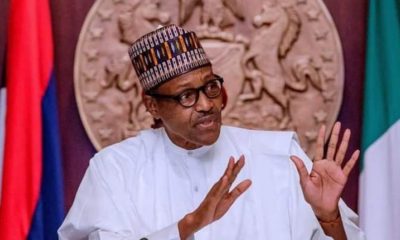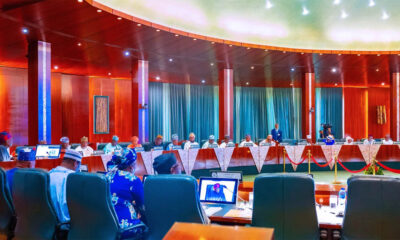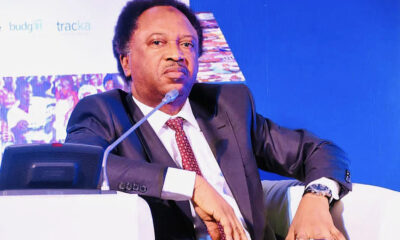Business
Buhari: Five million homes to get solar power by 2030

Nigeria is working on an ambitious energy plan including decentralised solar energy solutions that will substantially reduce the energy shortcomings by the year 2030, President Muhammadu Buhari has said.
The President spoke on the sidelines of the 76th United Nations General Assembly in New York on the High-Level Dialogue on Energy.
Spokesman for the President, Mr Femi Adesina, in a statement Friday night, quoted Buhari as saying, “Nigeria’s commitment to a just transition is reflected in our ambitious Energy Compact, which includes the government’s flagship project to electrify five million households and 20 million people using decentralised solar energy solutions.
“This is a major first step towards closing our energy access deficit by 2030. Nigeria’s commitment is also reflected in the development of our Energy Transition Plan, which was developed with the support of the UK COP26 Energy Transition Council.”
He called for support from developed countries to unlock the financing needed to accelerate a just energy transition for all.
“The focus of our discussions on transition must now evolve how we help countries develop detailed energy transition plans and commitments to mobilize enough financing to empower countries to implement those plans,” he said.
The President said the scale of financing required for Nigeria to achieve net-zero would amount to over $400bn across the Nigerian economy in excess of business-as-usual spending over the next 30 years.
He said, “This breaks down to $155bn net spends on generation capacity, $135bn on transmission and distribution infrastructure, $75bn on buildings, $21bn on industry and $12bn on transport.”
Buhari, however, said that gas would continue to have a big role to play before phasing it out, explaining that solid fuel cooking was still wreaking havoc in Africa:
He said, “As a global leader on the energy transition, it is imperative that I flag a major risk to development that stems from the current narrative around the energy transition, particularly on the role of gas and the lack of financing.
“Nigeria’s Energy Transition Plan has laid out our road map to reach net-zero and highlights the scale of the effort required, which includes the development and integration of renewables into current grid infrastructure at tremendous scale and electrification of all sectors.
“This is challenging for any country, especially a developing country. On our development objectives, gas will have a key role to play here for some years before being phased out.”
President Buhari noted that these plans must also take into account the provision of access to electricity and clean cooking solutions for those in Nigeria and around the world currently without access.
He also stressed the essential role of gas in addressing clean cooking challenges.
“Globally, there are 2.6 billion people who lack access to clean cooking – which is unacceptable. Even more concerning is that solid fuel cooking in Africa causes almost 490,000 premature deaths annually, making it the second-largest health risk in Africa,” he stated.
Business
We’re not involved in N40m HxAfrica mortgage scheme – FMBN
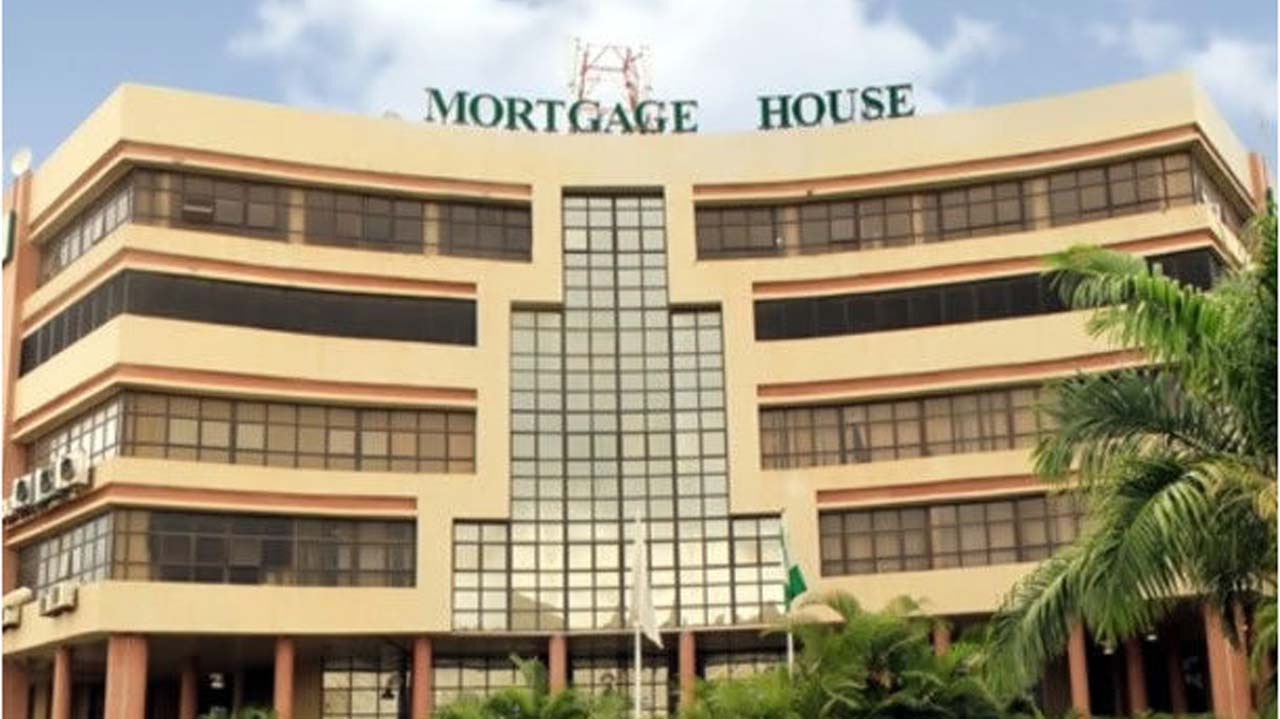
We’re not involved in N40m HxAfrica mortgage scheme – FMBN
By Dada Jackson
The Federal Mortgage Bank of Nigeria (FMBN) has distance itself from claims linking it to a N40 million mortgage pre-financing scheme promoted by Housing Exchange Africa (HXAfrica).
In an official disclaimer issued by Virginia Jang, FMBN’s Group Head of Corporate Communications, it clarified that the bank has no formal partnership or approval arrangement with HXAfrica concerning the alleged scheme.
“The management of the Federal Mortgage Bank of Nigeria wishes to disclaim reports in the media by HXAfrica (Housing Exchange Africa) on a purported N40 million mortgage pre-financing scheme, which referred to FMBN as a partner,” Jang stated
She further explained that while HXAfrica had applied for engagement with the bank, no approvals had been granted, and no formal agreements had been finalized.
Jang emphasized that FMBN remains committed to advancing housing initiatives, including the forthcoming Diaspora Mortgage Scheme, which is being developed in collaboration with the National Diaspora Commission (NIDCOM)
“While the FMBN and NIDCOM remain committed to the roll-out of the Diaspora Mortgage Scheme after obtaining the necessary regulatory approvals, we will endeavour to provide official information and updates on our respective websites and social media handles to prevent the public from being misled,” she added.
The statement also revealed that NIDCOM had issued a similar disclaimer regarding the HXAfrica scheme, urging the public to be cautious of unverified claims.
FMBN assured citizens that details of the official Diaspora Mortgage Scheme would be communicated through authorized channels once regulatory approvals are secured.
The bank reiterated its commitment to delivering credible housing solutions while encouraging the public to rely only on updates from its verified platforms.
Auto
Soludo: Kojo assembly plant will make Anambra auto manufacturing hub

Soludo: Kojo assembly plant will make Anambra auto manufacturing hub
Anambra State Governor, Professor Charles Chukwuma Soludo, has expressed optimism that the new Kojo automotive assembly plant at Umunya along the Enugu-Onitsha Expressway will not only boost the economy of the state but also reposition it as an automotive manufacturing hub.
The assembly plant nearing completion is expected to roll out its first set of vehicles under the Soludo administration soon.
The governor spoke at the just concluded Anambra State Investment Summit (ANINVEST 2.0) with Kojo Motors as one of the official partners and sponsors.
This year’s ANINVEST held under the theme “Changing Gears: Accelerating Anambra’s Economic Transformation”
was organised by the state government as a pivotal event in advancing the collective vision for rapid development of the state’s economy.
Speaking on the sidelines of the summit, Managing Director of OMAA, Chinedu Oguegbu, reiterated the plan of the company to invite Governor Soludo to commission the plant and drive the first locally assembled vehicle out of the Kojo Assembly Plant by the first quarter of 2025.
He said, “His Excellency is very passionate about the Kojo Motors auto assembly plant. He is very eager to see its completion and commencement of assembly of vehicles come to reality.
“I can assure him and the state government that we are doing everything possible to ensure we meet with the governor’s wishes and aspirations.”
The event brought together stakeholders from the various sectors of the local and global economy including industry leaders, development partners, financial institutions and other relevant participants, all united in a commitment to accelerating the economic transformation of Anambra State.
Anambra, according to the state governor, is fast becoming a renewed investors’ destination for different types of money bags rushing to the state to capitalise on the pledged ease of doing business to set up businesses.
“This time around, one of such massive investments is being undertaken by John Ikenna Oguegbu, an indigene of the state and chairman, founder and CEO, Kojo Motors Limited,” Chinedu Oguegbu said.
Last year September, Governor Soludo performed the groundbreaking ceremony of the Kojo Motors auto assembly plant for the local assembly of the OMAA range of gas-powered mini passenger and commercial buses as well as Chinese range of Yutong passenger and commercial buses.
While congratulating John Ikenna Oguegbu, chairman and chief executive of Kojo Motors Limited for bringing his wealth to his home state to invest. Governor Soludo also commended the Yutong buses manufacturers from China for the smart move of coming to Anambra State to set up the auto assembly plant in collaboration with the local franchisee.
The governor stated that the decision to allow prospective investors to come and invest in the state was not out of philanthropy or charity, but rather a business decision model that would take Anambra State to the world and bring the outside world to the state.
Governor Soludo pledged the state government’s commitment and patronage of the vehicles rolling out of the Yutong Assembly plant.
He declared that the state government under his administration was on course for massive industrial development, employment generation and prosperity for all its citizens.
Business
Naira slumps on NNPC, marketers importation of fuel

Naira slumps on NNPC, marketers importation of fuel
The naira has weakened further on the parallel market, dropping to N1,740/$ from N1,720/$.
Similarly, the NAFEM official exchange rate showed a slight depreciation on Friday, closing at N1,652/$ compared to the earlier rate of N1,650/$.
The Nigerian National Petroleum Company Limited (NNPC) and other oil marketers imported 1.5 million metric tonnes of petrol and 414,018.764 metric tonnes of diesel between October 1 and November 11, 2024.
The country’s inflation rate also spiked, with the Consumer Price Index (CPI) rising to 33.88% in October, up from 32.70% in September, according to the National Bureau of Statistics (NBS).
The oil importation statistics indicated 13,500 metric tonnes of jet fuel alongside petrol and diesel imports during the 42-day period.
The total value of these products was put at $1.9 billion or approximately N3 trillion.
The breakdown revealed that two billion litres of petrol, 500 million litres of diesel, and 17 million litres of jet fuel were imported.
But at an event in Lagos, NNPC’s Group Chief Executive Officer, Mele Kyari, highlighted the company’s commitment to reducing dependence on imported refined products.
The NNPC spokesperson Olufemi Soneye clarified that while the company prioritizes sourcing from local refineries, importation would continue based on economic factors.
READ ALSO:
- NAF air strikes kill scores of bandits in Kaduna, free kidnap victims
- Appeal court affirms Baruwa as NURTW president, renders MC Oluomo election invalid
- 13 Nigerian girls rescued from traffickers in Ghana
“Today, NNPC does not import any products; we are taking only from domestic refineries,” Kyari stated. Soneye, however, added, “The GCEO’s statement should not be construed to imply that NNPC is obligated to be the sole off-taker of any refinery or that we will no longer import fuel. While NNPC prioritises sourcing products from domestic refineries, this is contingent upon economic viability.”
The Dangote Refinery, which has advocated for sourcing locally refined products, faces challenges with pricing dynamics, making the transition complex.
Aliko Dangote, the refinery’s President, recently disclosed that it holds over 500 million litres of fuel in reserves.
The NNPC’s importation data showed Lagos, Warri, Port Harcourt, and Calabar as key discharge points for refined products.
Naira slumps on NNPC, marketers importation of fuel
-
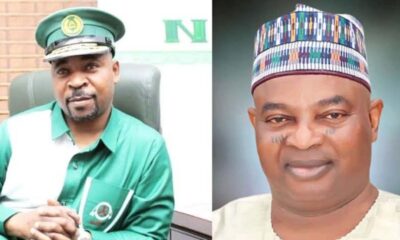
 metro1 day ago
metro1 day agoSouth-West NURTW: Why we chose Oluomo over Baruwa
-

 metro3 days ago
metro3 days agoCourt orders varsity to pay lecturer N40m compensation for wrongful dismissal
-

 Opinion3 days ago
Opinion3 days agoApomu king turns warmonger for PDP
-
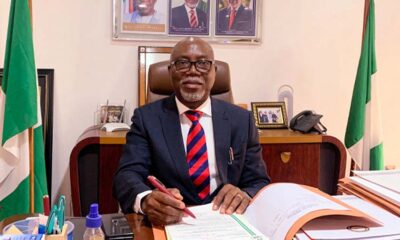
 Politics3 days ago
Politics3 days agoOndo poll: Three gov candidates withdraw for Aiyedatiwa
-

 News2 days ago
News2 days agoLate COAS Lagbaja gets CFR honour, buried amid tributes
-
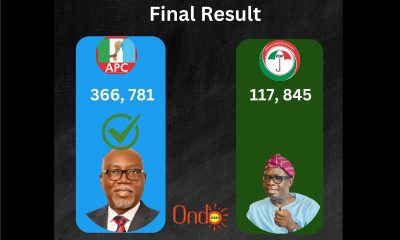
 News9 hours ago
News9 hours ago[UPDATED] [Breaking] APC’s Lucky Aiyedatiwa wins Ondo governorship election
-

 metro2 days ago
metro2 days agoNAF air strikes kill scores of bandits in Kaduna, free kidnap victims
-

 Sports2 days ago
Sports2 days agoHow much is Mike Tyson, Jake Paul getting paid for the fight?



